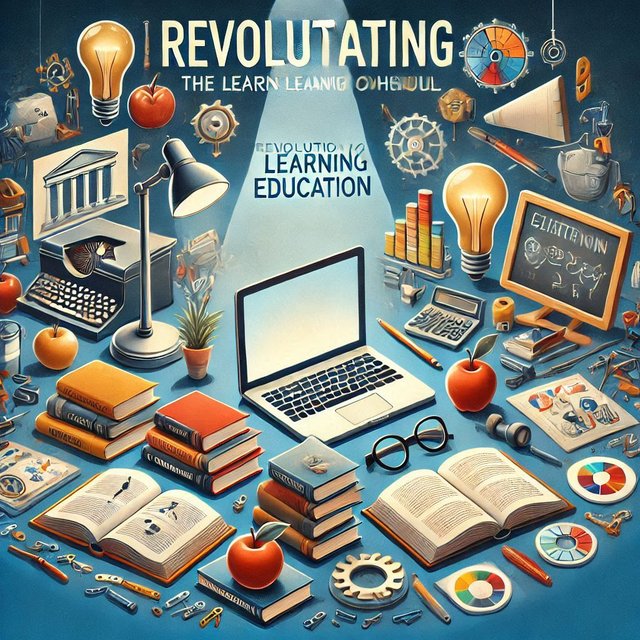Revolutionizing Education: The Case for a Learning Overhaul
In today's rapidly evolving world, our approach to education is due for a major shake-up. As we step into 2025, it's time to critically examine how we learn and teach. Here's why conventional education needs a massive overhaul and what the future of learning could look like.

The Problem with Traditional Education
1- Lack of Relevance: Students often don't understand why they're learning certain subjects.
This disconnect leads to disengagement and poor retention.
2- One-Size-Fits-All Approach: The current system moves students through grades like an assembly line, ignoring individua learning paces and interests.
3-Outdated Teaching Methods: Many classrooms still rely on lectures and rote memorization, failing to engage students effectively.
The Future of Learning
Problem-Based Learning: Instead of teaching tools in isolation, education should focus on solving real-world problems. This approach makes the relevance of skills immediately apparent.
Gamification: Education should be as engaging as video games. Interactive, compelling content can make learning addictive rather than a chore.
Personalized Progression: Allow students to advance at their own pace in different subjects, breaking away from rigid grade levels.
Emphasis on Critical Thinking: Teach students to analyze information from first principles, rather than relying on convention or analogy.
Explaining the 'Why': Teachers should clearly communicate the purpose behind each subject, increasing motivation and engagement.
The Role of Technology
With information freely available online, the value of traditional college education is being questioned. Self-taught learning through books, conversations, and hands-on experience is becoming increasingly viable.
Conclusion
As we move forward, it's crucial to reimagine education as an interactive, personalized, and purpose-driven experience. By focusing on problem-solving, critical thinking, and individual progression, we can create a more effective and engaging learning environment for future generations.